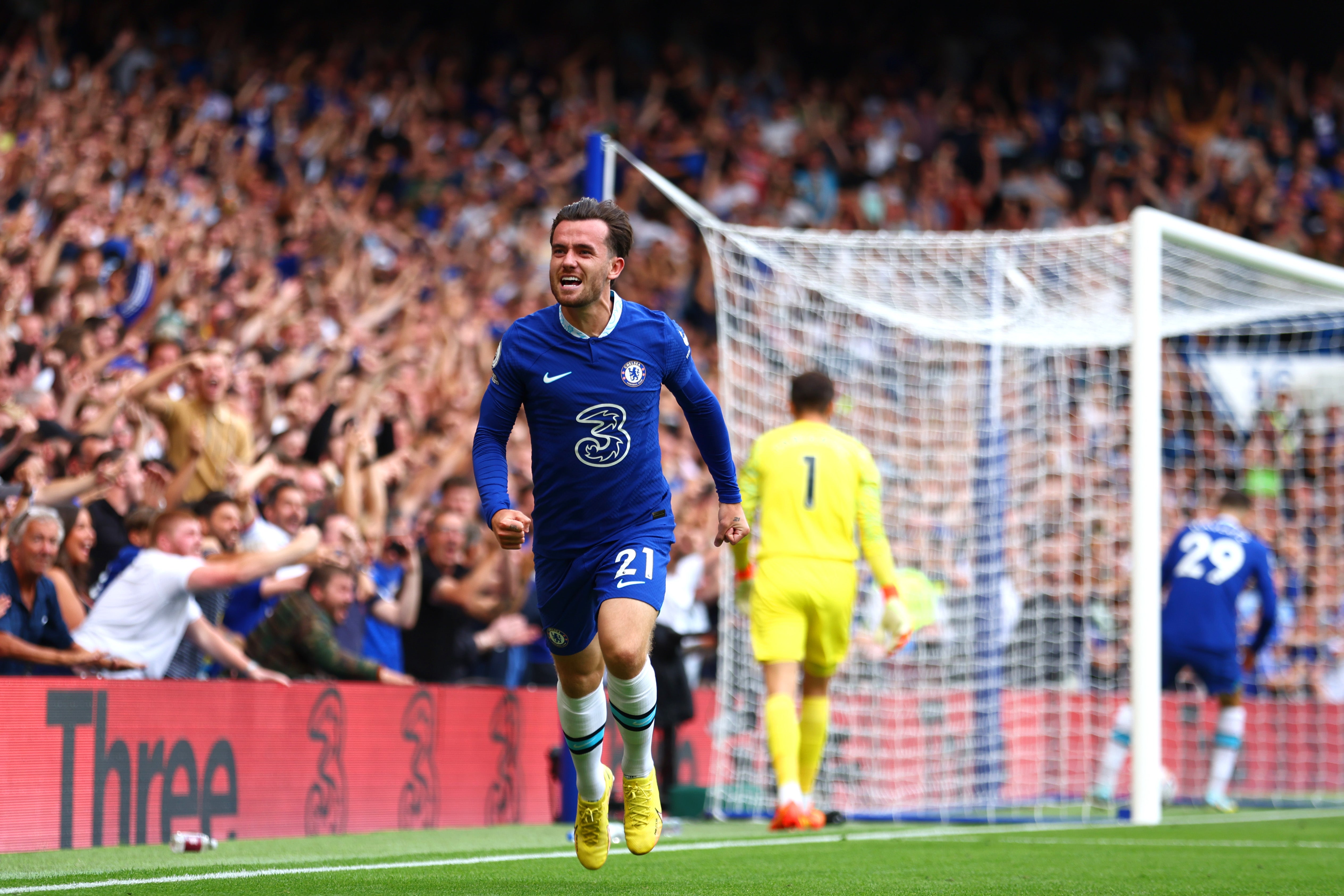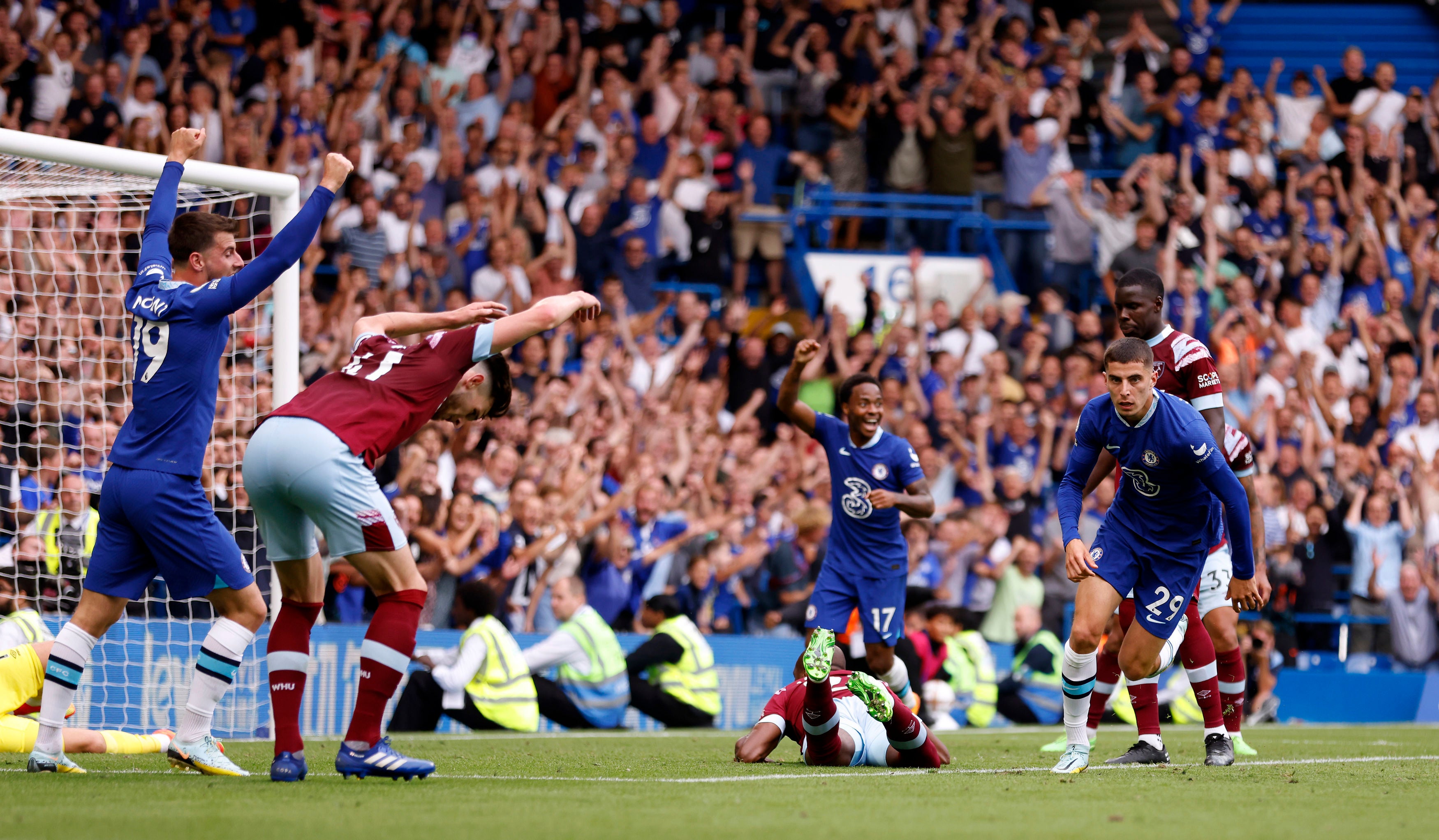Ben Chilwell inspires Chelsea comeback to sink West Ham and lift Thomas Tuchel
Chelsea 2-1 West Ham United: Tuchel’s substitutions made the difference in the second half as the Blues found a way to win three crucial points

Your support helps us to tell the story
From reproductive rights to climate change to Big Tech, The Independent is on the ground when the story is developing. Whether it's investigating the financials of Elon Musk's pro-Trump PAC or producing our latest documentary, 'The A Word', which shines a light on the American women fighting for reproductive rights, we know how important it is to parse out the facts from the messaging.
At such a critical moment in US history, we need reporters on the ground. Your donation allows us to keep sending journalists to speak to both sides of the story.
The Independent is trusted by Americans across the entire political spectrum. And unlike many other quality news outlets, we choose not to lock Americans out of our reporting and analysis with paywalls. We believe quality journalism should be available to everyone, paid for by those who can afford it.
Your support makes all the difference.Just at a point when Thomas Tuchel’s tactics were being questioned, when players like Ben Chilwell must have been wondering about their place and so many at Stamford Bridge had been critical of refereeing decisions, all of these elements came together for a badly needed 2-1 win over West Ham United.
It really looked like it was going to be so much worse for Tuchel. It instead ended up being the sort of victory that can prove invigorating, albeit only after a game that dramatically improved late on.
These erratic 90 minutes showed why there has been some concern within Chelsea, but also why Tuchel won a Champions League.
It was his substitutions, as well as a late VAR correction, that ultimately won the game.
None of them were any of the new boys, of which £206m worth were on the pitch, with Pierre-Emerick Aubameyang in the stands.
It was instead the introduction of Chilwell that proved most inspired. He came on for Marc Cucurella and immediately scored Chelsea’s equaliser before brilliantly setting up Kai Havertz’s winner.
West Ham hit the post through Maxwell Cornet and saw the new signing’s late strike disallowed for a perceived foul on the underperforming Edouard Mendy, but David Moyes should maybe most look at the typical defensive withdrawal that invited Chelsea on.
Tuchel’s team might have been there for the taking.
They had initially been so hesitant, which was illustrated by the manner of Michael Antonio’s opening goal.
Some of that was down to the manager’s typical reaction to another porous defeat, this time 2-1 at Southampton, which was why this victory was so necessary.
It looked like threatening to tailspin for Chelsea. Tuchel instead arrested things, albeit only by showing more aggression. He responded to his own reticence – as Chelsea continue to look for balance.
There is something of a pattern here with the German, one that goes back to his first few months in the job, and particularly an early 5-2 home defeat to West Brom. Any time that Chelsea look any way “soft” in an individual game – to use the manager’s own word – he immediately goes to the other extreme and locks up with at least seven defensive-minded players. That was exactly the case here, after the defeat at Southampton. It often left Sterling as the sole player offering any creativity, which led to a lot of dead ends.
There was even an argument that a more withdrawn West Ham had a greater number of purely attacking players on the pitch, given that Lucas Paqueta was making his debut in a team that also featured Pablo Fornals, Michail Antonio and Jarrod Bowen.
They only belatedly began to use it, though, as they sensed an obvious insecurity in Chelsea. That is of course the source of Tuchel’s tactical changes.

This is a team that no longer has a clear sense of itself. There is an uncertainty there that brings a hesitation, meaning Chelsea are there to be got at.
So it proved with Antonio’s goal. It wasn’t the prettiest goal of the season, but it was one of the most forceful.
Tuchel’s defensive matrix couldn’t prevent a corner or offer the solidity to stop the ball from bouncing around. Mendy was again culpable as the goalkeeper weakly palmed at Paqueta’s header, allowing the goalmouth scramble that saw Antonio bundle the ball over the line. Both the striker and Declan Rice deserve credit for their persistence.
It didn’t seem a coincidence that the goal came immediately after Tuchel made a double substitution, forcing him into another.
Havertz and Chilwell were eventually brought on, the latter proving crucial. The left-back offered genuine innovation, most of all in his finish.
With Chelsea energised by Antonio’s goal but still looking like they might be frustrated, Thiago Silva decided to go direct and just launched the ball into the box. Chilwell got a head on it that may have been unintentional, only to do something very visibly intentional. With Lukasz Fabianski needlessly coming out moments after he had spilt a ball, Chilwell skilfully diverted the ball between his legs from a tight angle.
It was not just 1-1, but a changed game, and a charged Chelsea.
It wasn’t long until Chilwell found space down the left, and Havertz finished.
The game itself wasn’t settled. There was still Cornet hitting the post, and then hitting the net, only for Bowen to be penalised for supposedly impeding Mendy.
It meant that, in contrast to their last two home games, Chelsea supporters were grateful for the refereeing decision.
A changed attitude, and a changed mood. That’s also what a win brings.
Tuchel must now look to how he changes his team.


Join our commenting forum
Join thought-provoking conversations, follow other Independent readers and see their replies
Comments